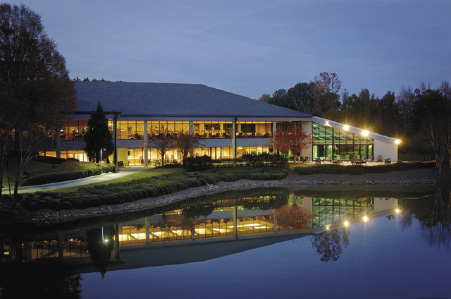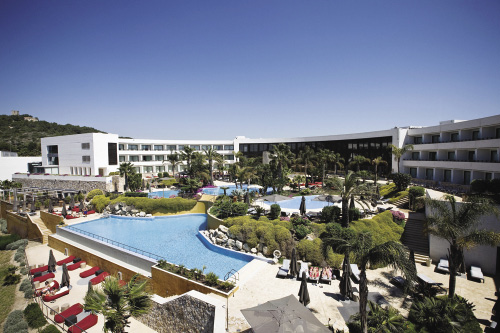- Home
- Media Kit
- Current Issue
- Past Issues
- Ad Specs-Submission
- Ad Print Settings
- Reprints (PDF)
- Photo Specifications (PDF)
- Contact Us

![]()
ONLINE

Nourishment, Connectivity, and Community
Editors’ Note
Steven Rudnitsky joined Dolce Hotels and Resorts in 2008 as the next step in a 32-year career associated with iconic consumer packaged-goods companies including Johnson & Johnson, PepsiCo, Pillsbury, and Kraft Foods/Nabisco as well as hospitality companies including Cendant Corporation/Wyndham Worldwide. He built a reputation for generating strong top- and bottom-line growth, turning around distressed businesses and expanding into global markets. As President and Chief Executive Officer of Dolce Hotels and Resorts – a branded, meetings-focused hospitality company that manages a portfolio of hotels, resorts, and corporate conference centers in the United States, Canada, and Europe – Rudnitsky oversees all aspects of the business and serves on the board of directors. During the last three and a half years, he launched a multiyear strategic plan, restructured the company’s leadership, and significantly improved the value of the existing portfolio to property owners by increasing Dolce’s revenue contribution from 19 to 46 percent. He also increased Dolce’s development pipeline and added major properties including the iconic Silverado Resort in California’s Napa Valley and The Alexander, a new hotel in center-city Indianapolis.
Company Brief
Dolce Hotels and Resorts (www.dolce.com) is a branded hotel management company with an expertise in meetings of all kinds: large and small business meetings and social gatherings including weddings and parties. The company specializes in innovative products and services for meeting planners, signature dining experiences, superior service, and boasts strong ties to the communities in which it operates. Its core focuses – Nourishment, Connectivity, and Community – are reflected in the company’s three-ring logo. Dolce currently manages hotels and conference centers in the United States, Canada, and Europe.
Are you happy with the awareness of Dolce Hotels and Resorts in the market today and where does the brand stand?
Dolce is known widely by meeting planners in all segments – corporate, government, and education. They are a key constituency and we are working to bring our brand story to more business and leisure travelers.
The hotel business as it relates to brand awareness is a function of points of distribution, so the more points of distribution you have, the higher your brand awareness. Therefore, we always look to grow our portfolio to drive the presence and awareness of our brand.

Exterior of the Dolce Atlanta Peachtree
Is your clientele strictly the high-end niche market?
When you look at our mix of business, 65 percent is group business and 35 percent is transient. Thus, we have a specific niche with meeting planners within the group sector of the business that we put a clear focus on every day. Our properties are positioned in the upper-upscale arena but not luxury, which avoids the resistance of groups that shy away from luxury hotels.
Your logo focuses on three rings: Nourishment, Connectivity, and Community. How do those rings symbolize the culture of Dolce?
Nourishment is about helping guests and associates feel recharged and refreshed by all that we do. We developed and implemented breakthrough healthy food and beverage strategies through our Thoughtful Foods for Thoughtful Minds initiative launched in 2011 that features menus created with wholesome ingredients to nourish our guests’ minds and keep them alert. In addition, Dolce is pioneering Nourishment Hubs, which offer fresh and energizing refreshments throughout meetings, not just breaks. We buy fresh ingredients from local sources with an eye on sustainable production and we keep our chefs front and center with our customers. Each one of our chefs features regional specialties. So we try to be out in front of what our guests and corporate customers want.
From a Connectivity standpoint, we create environments that allow our clients to maximize their potential. That environment includes robust Internet bandwidth throughout our properties for an unlimited number of devices at no charge.
Community means we encourage our general managers and our property leadership teams to be active and involved in their communities. We want our properties to become part of the fabric of their respective communities.

Dolce Sitges, overlooking the
Mediterranean Sea in Spain
Is there opportunity for Dolce in Asia and other parts of the world?
Dolce is an international brand that resonates across several continents. We are very interested in China and would consider entering that country with the right joint-venture partner. Meanwhile, we continue to focus on the U.S., Canada, and Europe.
Is there still a strong need for the travel agent, and will there always be that role?
The more places you have your product, the more places you sell it. We work with a host of different travel agents and third parties to make certain that our products are on the shelf wherever appropriate.
What focus do you place on sustainability?
Dolce implemented a green policy years ago and worked with our hotel and resort owners to invest in sustainability programs. Dolce’s Green Council, which consists of six leaders from North America and Europe, lead the company’s sustainability program.
Sustainability is particularly important for our new hotels. For example, The Alexander, our newest property now under construction in Indianapolis, will be LEED-certified.
We are committed to the Code of Sustainability established by IACC, the International Association of Conference Centers. That code addresses recycling, reuse, conservation, air quality, waste management, and 50 other tenets of sustainability.
Did you know early on that this was going to be the right role?
What intrigued me was the opportunity to grow a brand that has a well-defined niche in an industry that has a significant number of brands. Dolce’s niche is a function of a well-defined point of difference. Because of that point of difference, we don’t have to compete solely on price and can maintain our strategy and perspective. I am still excited by the long-term potential of this brand and our business.
How critical has it been to build a strong team?
People are a key factor in any organization’s success. You want to build your team while you build and refine your strategies.
What makes a successful CEO todayand how do you focus your efforts?
It starts with articulating a clear, concise vision and a corresponding set of strategies that deliver against that vision. I focus on making sure that Dolce’s employees have the resources to accomplish their tasks, a clear understanding of where the company is headed and how we’re going to get there, and how their individual roles relate to getting there.•